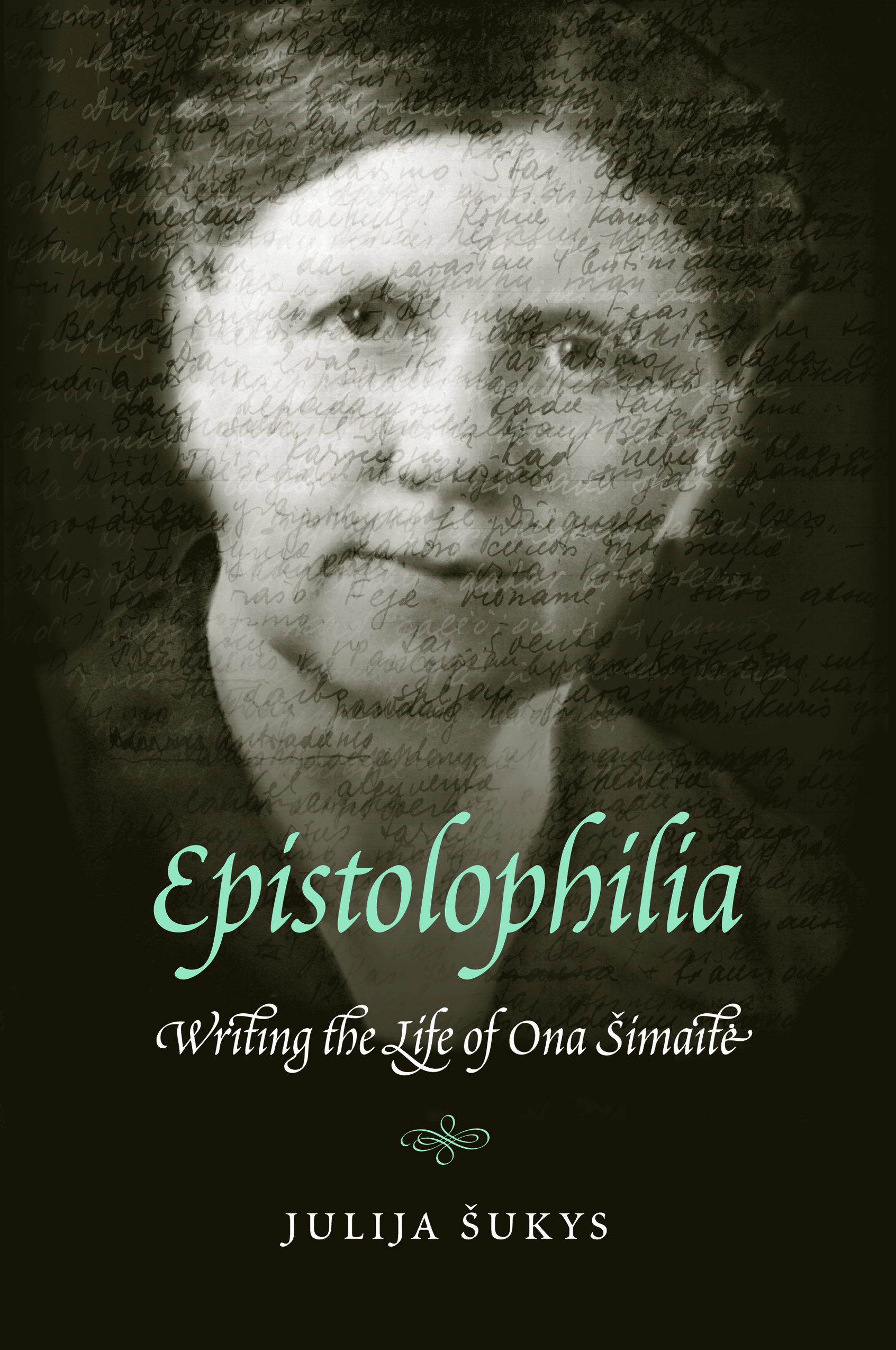Epistolophilia: Writing the Life of Ona Šimaitė
Winner of the 2013 Helen and Stan Vine Canadian Jewish Book Award for Holocaust Literature
Shorlisted for the 2012 Mavis Gallant Prize for Nonfiction
Longlisted for the 2012 Charles Taylor Prize in Literary Nonfiction
Named one of the Best Books of 2012 by Maisonneuve Magazine
Praise for Epistolophilia
“Šukys’s. . .meditations on the power of letters and writing make this a powerful testament to the confluence of history and individual lives and passions.” — Publishers Weekly (starred review)
“Epistolophilia is not a typical biography, and Šimaitė was not a typical World War II hero. For readers looking for an unconventional account of the World War II and post-war eras, as well as those interested in women’s life writing, Epistolophilia is a nuanced and compelling work.” — ForeWord Reviews
“Šukys’s great respect for her subject inspires respect for her own book. ‘When I read [the letters]’ Šukys writes, ‘I feel as though she is speaking to me directly…’ And that’s also how readers of Epistolophilia feel, as though Šukys is personally telling us the story of this incredible, and incredibly important, woman over a cup of tea.” — Montreal Review of Books
“Šukys is to be commended for providing us with this testament and story of a little-known hero.” — Baltimore Jewish Times
“A startling paradox that while Šimaitė died at 76 before completing her memoirs, Šukys is able to capture Šimaitė’s story while successfully writing an unexpected memoir of her own.” — PLOP! Review
“Rather than use chronology as a guide, she divides her book into nine parts, each a satellite in the orbit that was Šimaitė’s world . . . . The technique works incredibly well, providing a full and revealing portrait of a heroic, principled if sometimes fractious woman whose life was marked by hardship and disappointment, but who left behind an invaluable archive: her own.” — The Montreal Gazette
“Šukys, in a true labor of love, rescues a remarkably brave woman from history’s dustbin, and in the process complicates the narrative about Lithuania during the Holocaust and the postwar period.” — Women’s Review of Books
“This is an intelligent, humane, and noble book that rescues from obscurity an intelligent, humane, and noble woman. It stands as a testament to the power of reading, writing, compassion, and extraordinary courage.” — David Bezmozgis, author of The Free World
“This is an important new take on the legacy of the Holocaust. Eloquent and elegantly written, it reads like a W.G. Sebald text but with a voice profoundly its own.” — Laura Levitt Professor of Religion, Jewish Studies and Gender, Temple University
“With this searching, nuanced biography, Julija Šukys introduces the English-speaking world to a genuine heroine of the Holocaust, while at the same time raising vital questions about the role of trauma, poverty, and ill health on women’s literary production. Thoughtful, exhaustively researched, and deeply felt, Epistolophilia is an important book.” — Susan Olding, author of Pathologies: A Life in Essays
About Epistolophilia
The librarian walks the streets of her beloved Paris. An old lady with a limp and an accent, she is invisible to most. Certainly no one recognizes her as the warrior and revolutionary she was, when again and again she slipped into the Jewish ghetto of German-occupied Vilnius to carry food, clothes, medicine, money, and counterfeit documents to its prisoners. Often she left with letters to deliver, manuscripts to hide, and even sedated children swathed in sacks. In 1944 she was captured by the Gestapo, tortured for twelve days, and deported to Dachau.
Through Epistolophilia, Julija Šukys follows the letters and journals—the “life-writing”—of this woman, Ona Šimaitė (1894–1970). A treasurer of words, Šimaitė carefully collected, preserved, and archived the written record of her life, including thousands of letters, scores of diaries, articles, and press clippings. Journeying through these words, Šukys negotiates with the ghost of Šimaitė, beckoning back to life this quiet and worldly heroine—a giant of Holocaust history (one of Yad Vashem’s honored “Righteous among the Nations”) and yet so little known. The result is at once a mediated self-portrait and a measured perspective on a remarkable life. It reveals the meaning of life-writing, how women write their lives publicly and privately, and how their words attach them—and us—to life.
Buy the Book


